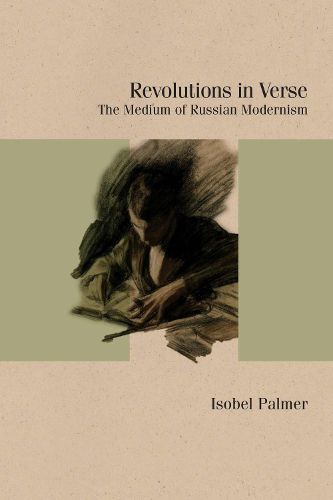Readings Newsletter
Become a Readings Member to make your shopping experience even easier.
Sign in or sign up for free!
You’re not far away from qualifying for FREE standard shipping within Australia
You’ve qualified for FREE standard shipping within Australia
The cart is loading…






Modernism cannot be reduced to a rejection of established norms. Revolutions in Verse: The Medium of Russian Modernism spotlights Russian modernist poets' and formalist theorists' conscious engagement with formal convention, showing how their efforts were tied up with broader attempts in the early Soviet era to understand and articulate the nature of poetry and its most characteristic devices. Returning to critical debates around and poetic encounters with three key aesthetic categories-rhythm, image, and voice-Isobel Palmer examines the more profound innovation of this period: its interest in the material bases of poetic speech. Through fresh readings of canonical poets and theorists, from Andrei Bely and Vladimir Mayakovsky to Yury Tynianov and Viktor Shklovsky, Palmer shows how the proliferation of interartistic experiments and the emergence of new media technologies made poetry visible as a medium in its own right. This book offers a timely contribution to renewed discussions about modernism, the concept of literary form, and the value of literature and literary criticism.
$9.00 standard shipping within Australia
FREE standard shipping within Australia for orders over $100.00
Express & International shipping calculated at checkout
Modernism cannot be reduced to a rejection of established norms. Revolutions in Verse: The Medium of Russian Modernism spotlights Russian modernist poets' and formalist theorists' conscious engagement with formal convention, showing how their efforts were tied up with broader attempts in the early Soviet era to understand and articulate the nature of poetry and its most characteristic devices. Returning to critical debates around and poetic encounters with three key aesthetic categories-rhythm, image, and voice-Isobel Palmer examines the more profound innovation of this period: its interest in the material bases of poetic speech. Through fresh readings of canonical poets and theorists, from Andrei Bely and Vladimir Mayakovsky to Yury Tynianov and Viktor Shklovsky, Palmer shows how the proliferation of interartistic experiments and the emergence of new media technologies made poetry visible as a medium in its own right. This book offers a timely contribution to renewed discussions about modernism, the concept of literary form, and the value of literature and literary criticism.